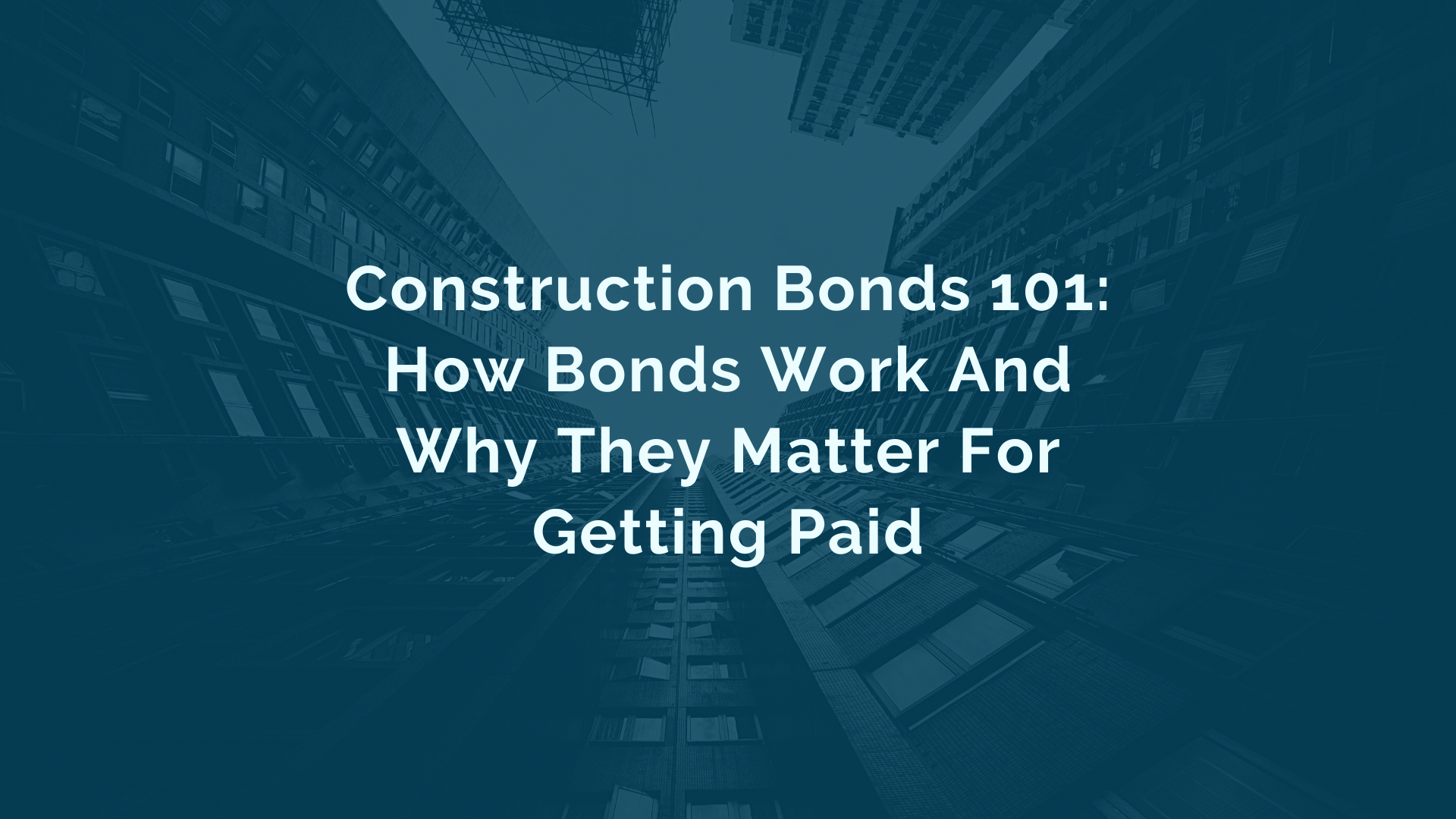How does a contractor’s bond work?
Bonds protect both property owners and contractors. A contractor’s bond is a guarantee that the person performing the job will do it at his agreed-upon price, on schedule, and to code. If the contractor fails to meet any of those requirements, you file a claim with your bonding company and they negotiate compensation for you.
You can issue a contractor’s bond on your own. It is not terribly expensive, given the fees are usually only 1-5% of your total contract on completed jobs. However, hiring a surety agent will speed up the bonding process and help you find good candidates for contracts under $25,000 or less. You pay more in fees if you don’t hire an agent but save time on the application process.
Who pays for bonds in construction?
It’s an important discussion since it impacts how teamwork works on a job site. If one side isn’t willing or able to follow through on responsibilities, then projects run into trouble. Let’s take a closer look under the hood of construction projects by answering some questions related to this topic.
When you hire someone to do work on your home, you want to know that they will be trustworthy and do good work. That’s why contractors often require a performance bond that assures the owner their work will be done as contracted.
The performance bond is paid for by the contractor and it usually protects the owner against financial loss due to faulty workmanship or materials. The bond can be issued by an insurance company, which essentially acts as a surety, or it can come from another business assuming responsibility for the actions of another (i.e., one trade subcontractor guaranteeing the payments and work performance of another).
What is a payment bond in construction?
A payment bond is a contract by which one party secures another party’s performance of their undertaking to the owner for a particular class of project. In certain cases, regardless of fault or negligence by either party, there may be a statutory right to recover from a third party.
A payment or labor and materials bond provides security for the faithful performance of a contractor’s obligation to pay all subcontractors and material suppliers for labor and material furnished in connection with the project.
Performance bonds provide security for the faithful performance of every kind of obligation arising out of the construction contract that can be performed without causing work stoppage or delay in completion, such as the obligation to complete the entire work according to plans and specifications.
In simple terms, a payment bond is a document in which a contractor pledges to pay a subcontractor or supplier for services or materials. The contract ensures the client that the general contractor has undertaken to indemnify them from these claims.
How do you get a construction bond?
A construction bond is a document that secures the owner of a property from any default by contractors. This document enables an owner to get help from courts if the contractor defaults on the payment or does not perform his obligations.
This document is required in most states for all construction projects that cost more than $500. It ensures the owner’s protection and minimizes disputes between the contractor and owners.
The bond is issued by a surety company after it finds out that the contractor and owner agree on the terms and conditions of their contract. These companies charge a percentage of the amount covered by the bond, which varies from state to state. The cost of the premium is charged when the contractor files for this bond, but when they renew it every year, there will be no additional charges except for additional costs or taxes imposed by the surety company.
What does the contractor bond amount mean?
A construction bond is a surety bond required by an owner or person funding the project if any governmental permits are involved in the acquisition of the permit. A contractor is normally the obligee in this type of contract and must meet with compliance to put up a performance bond with a bonding agency that can be used for any purpose at hand. Once it has been decided that a contractor will release funds with an individual contracting, then there are certain requirements through which one must go through with extreme urgency.
1) Identify your needs/permits
2) Determine who will contribute to the cost of coverage
3) Review all bids/quotes for the appropriate bond amount
4) Request appropriate bond form from prospective bidders/offerors
5) Request bond from prospective bidder/offeror (including the application and other required documents)
6) Review and sign a bond
7) Return signed bond to the contractor prior to the release of funds
8) If the contract is terminated or not completed, notify your bonding company immediately. Failure to comply with this step may result in a claim being denied and/or penalty for late notification.

